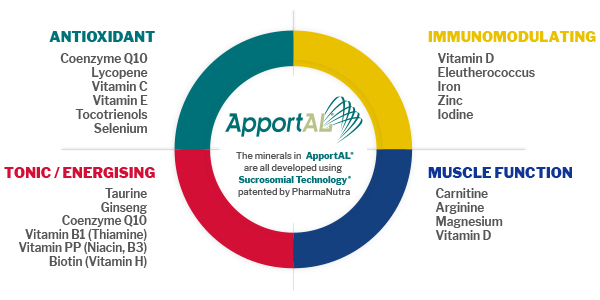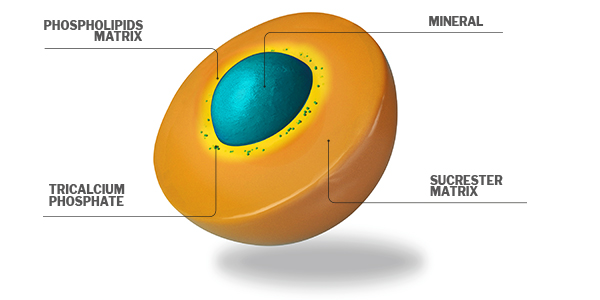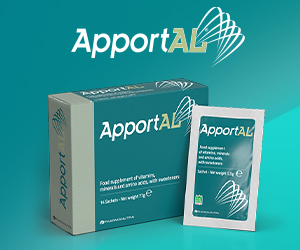29 August 2022 | News, Science
Seasonal issues: helping the body to defend itself from winter ailments

During cold months, our body could be stressed because of “fighting” against seasonal illnesses (e.g., influenza); the incidence of their symptoms depends on the population immunity system.
In this period, it is recommended to maintain an adequate nutrition for the optimal functioning of the immune system; in fact, it is well-known that a nutritional imbalance is commonly associated to negative consequences on our health. There are many vitamins and minerals that act to defend us against pathogens by supporting various effects of the immune response.

ApportAL® is a food supplement that helps the body to maintain the right amounts of these nutrients and it allows four important functions: immune, antioxidant, energising and tonic-adaptogen.
The Immune function comes from these nutrients:
- vitamin D, despite being known for its function of maintaining healthy bones and muscles, it may modulate the innate and adaptive immune responses; Vitamin D stimulates the growth and proliferation of T-lymphocytes and B cells, to defend us from the attack of pathogenic microorganisms.
- Eleutherococcus (E. Senticosus), also known as Siberian ginseng, improves immune function by stimulating the proliferation of NK cells, T-lymphocytes and antibody cells; but is most often used as an adaptogen (i.e., to increase endurance and improve memory).
- Iron is an essential element for our body to form the hemoglobin, a protein of red blood cells that allows oxygenation of tissues and cells. Furthermore, iron stimulates the immune system and, specifically, it promotes the growth of t-lymphocytes and Natural Killer cells.
- Zinc is a mineral with immunostimulant properties, confirmed by numerous studies in the medical literature. The most important activity of zinc is protection from the Rhinovirus, responsible of the common flu.
- Iodine, instead, promotes the normal production of thyroid hormones; these hormones enable the innate immune response, which is the first physical barrier preventing entry and proliferation of pathogens.
In ApportAL®, minerals such as Iron, Zinc, Iodine, Magnesium and Selenium, are formulated with Sucrosomial® Technology, a patent by Pharmanutra S.p.a, in which these minerals are protected by a phospholipids plus sucrose esters of fatty acids matrix. This innovative technology allows a high absorption and optimal gastrointestinal tolerability of these nutrients.

The antioxidant function comes from many nutrients, that are able to protect cells from oxidative stress caused by free radicals (e.g., ROS – reactive oxygen species). Excess free radicals can attack cellular elements and cause irreparable effects, such as oxidation of chromosomes, DNA bases, proteins and membrane lipids, disturbance in the cytoskeleton structure, inactivation of enzymes, cell death and malignant transformation of cells.
- Vitamin C (ascorbic acid) is a water-soluble molecule, and its antioxidant effect is expressed within the cytoplasm of the cells; due to its chemical structure, ascorbic acid is able to donate electrons to radical species. Vitamin C can regenerate Vitamin E in synergy with Selenium.
- Vitamin E is an antioxidant and protects the phospholipidic cell membrane from the lipoperoxidation. The most potent form of vitamin E is alpha-tocopherol, with high biological and nutritional value. Vitamin E is not only an antioxidant substance, but it also plays a pivotal role in producing the energy needed by the body. It is involved in the respiratory process of the skeletal muscles, improves the resistance of the muscles during strenuous physical activities, and can favor the dilation of the vessels.
- Selenium is a mineral that acts in synergy with vitamin E and protects the cell membrane from oxidative stress. This mineral is also capable of improving production of antibodies for the immune system and stimulates the activity of lymphocytes.
- Lycopene is a carotenoid responsible for red color in plants, and it is unique among carotenoids for its high antioxidant potential. By sweeping away free radicals, it protects the cell from the oxidation of its components. Lycopene is found mainly in red fruits and vegetables; particularly rich of this compound are red tomatoes.
- Coenzyme Q10, also called Ubiquinone, is a ubiquitous molecule with antioxidant activity. It acts inside the cell nucleus, where it improves the normal activity of the mitochondrion, a cellular organ that gives energy to the cell. Coenzyme Q10 is able to regenerate itself and the other antioxidants, such as Vitamin E.
Conclusion
We could consider all these nutrients like allies of our body to protect cells from oxidative damage and, at the same time, contribute to the optimal functioning of the immune system.
The dietary supplement ApportAL®, with its 19 nutrients, is useful to those who need a rapid energy recovery, to those who suffer frequent periods of weakness and asthenia, and to practitioners of intense physical activity. It is also recommended for post-influenza recovery and in case of deficiency of any of these nutrients.

BIBLIOGRAPHY:
- Ferroni, T. Jefferson., Influenza, BMJ Clin Evid. 2011 Oct 21;2011:0911.
- Aranow.,Vitamin D and the immune system, J Investig Med. 2011 Aug;59(6):881-6. doi: 10.2310/JIM.0b013e31821b8755
- M. Petyaev, Lycopene Deficiency in Ageing and Cardiovascular Disease, Oxid Med Cell Longev, 2016, 2016, 3218605.
- Grabowska et al., Let food be your medicine: nutraceutical properties of lycopene, Food Funct. 2019 Jun 19;10(6):3090-3102. doi: 10.1039/c9fo00580c.
